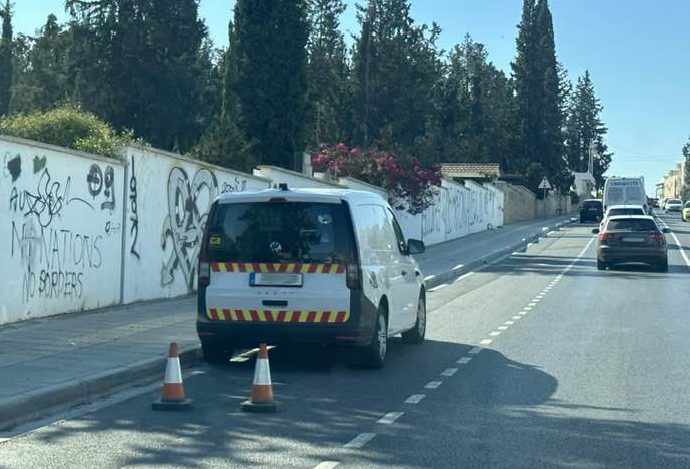Mobile speed cameras are “not set up on a whim”, traffic police director Charis Evripidou said on Tuesday.
Speaking to the Cyprus News Agency, he said there are “points where they are set up regularly”, and that the police decide when and where to set up mobile cameras based on “when increased speeds are considered to be recorded”.
He added that there “is a plan” regarding when and where the mobile cameras will be set up, saying they are “not set up on a whim”.
His comments were made after complaints had been issued regarding the placement of mobile speed cameras near roundabouts, where the speed limit changes, though he stressed that the police’s aim is not to catch drivers out, but to keep the roads safe.
“The selection of where we put the mobile cameras is based on studies, scientific documentation, and experience which has been going on for 20 years,” he said, adding that the studies have shown that policing of speed limits “must be continuous and unexpected”.
“Policing must be carried out everywhere, especially where there is an increased risk of accidents, but also in specific locations, which are judged to be dangerous according to the data,” he said.
He stressed that the roundabouts at which mobile speed cameras have been placed “are dangerous locations”, adding that this has been “clearly demonstrated” by road traffic collisions which occurred between the Nicosia general hospital roundabout and the nearby Ikea department store last week.
“These recent examples show that there is a requirement for policing to be everywhere, but also at specific locations, where every year there are studies by the competent police department, which determines them as dangerous,” he said.
Responding to a comment that mobile cameras near roundabouts seem to lead to “peaceful members of the public” getting fines, he said that “the police’s aim is not to have peaceful members of the public reported”.
On this matter, he added that “for better or worse, there is a tolerance in Cyprus, while in other countries, there is no such thing”.
Cyprus’ speed limit tolerance on intercity roads and motorways stands at 20 per cent, meaning that on roads with a speed limit of 100km/h, one can drive up to 120km/h without receiving a fine.
On urban roads, the tolerance stands at 10 per cent plus two kilometres per hour, meaning that on roads with a speed limit of 50km/h, one can drive up to 57km/h without receiving a fine.
Evripidou then added that repots of people being pulled over by the police for driving 10km/h over the speed limit are “false, inaccurate, and completely unfounded”.
“I am intense on this, because we had four fatalities in one day and unfortunately there are our fellow motorists who, instead of thinking that maybe they should go 10km/h below the speed limit, are thinking about how to drive 10km/h above the limit and not be pulled over by the police,” he said.
He said that since the start of the year, a total of 15,540 people have been caught speeding in Cyprus, averaging out at around 150 per day.






Click here to change your cookie preferences